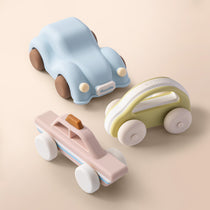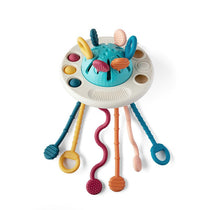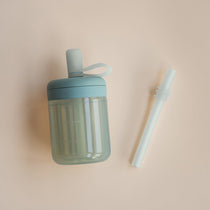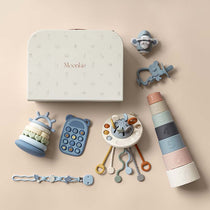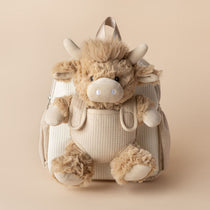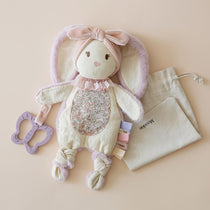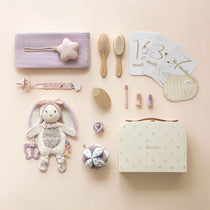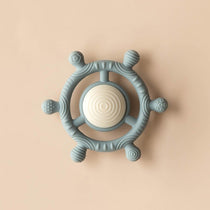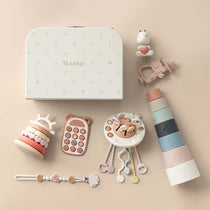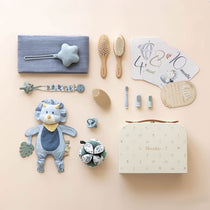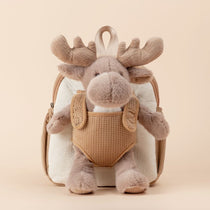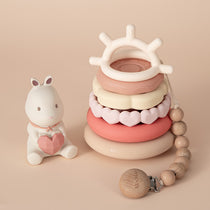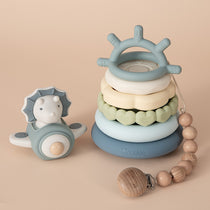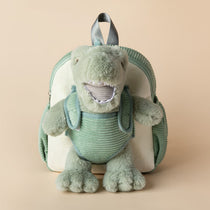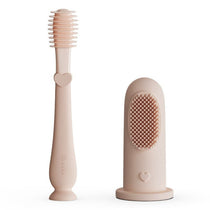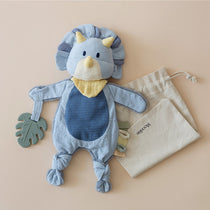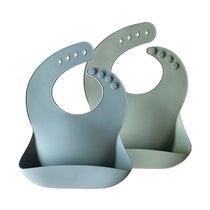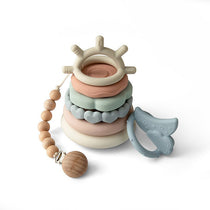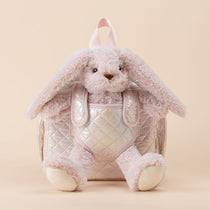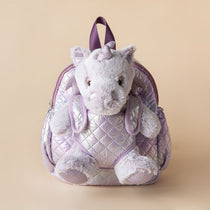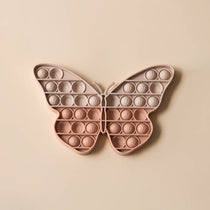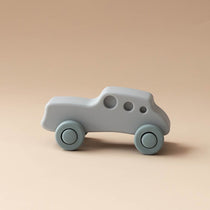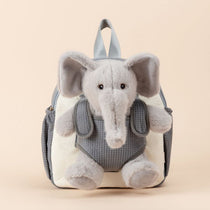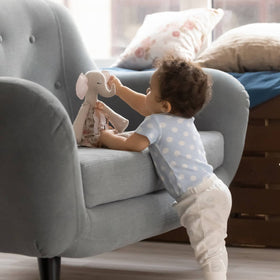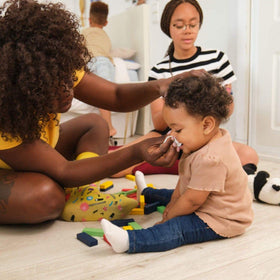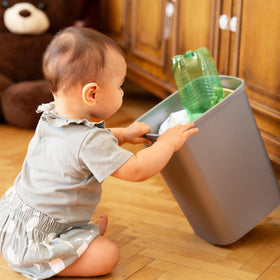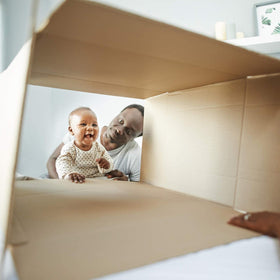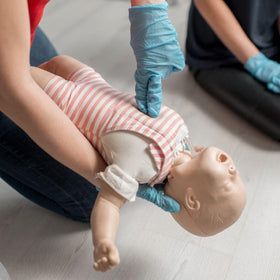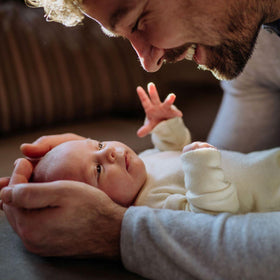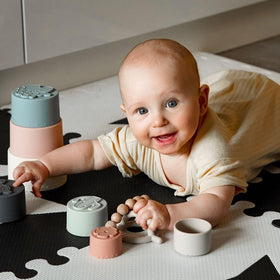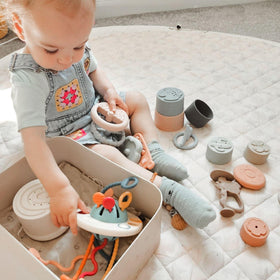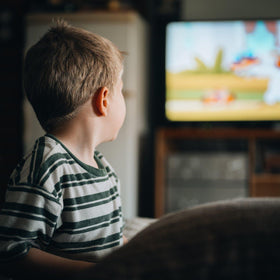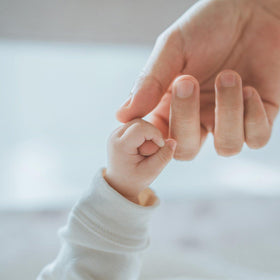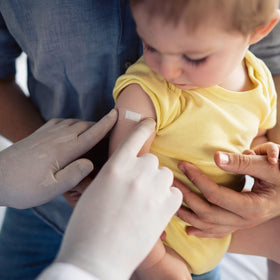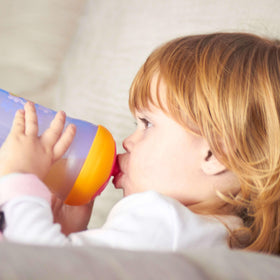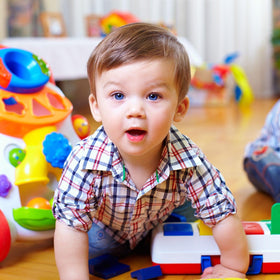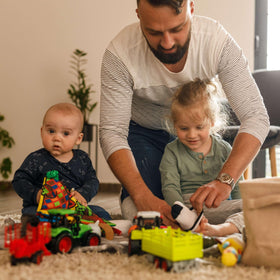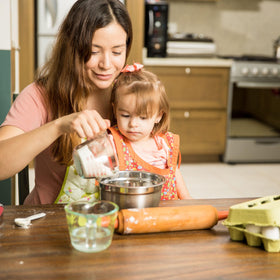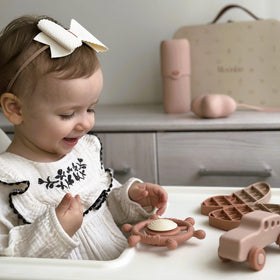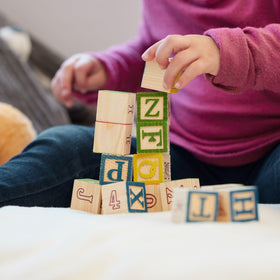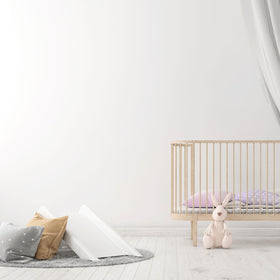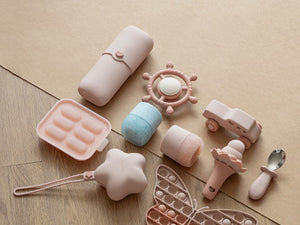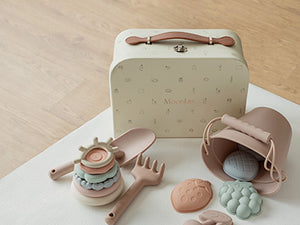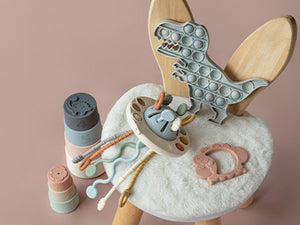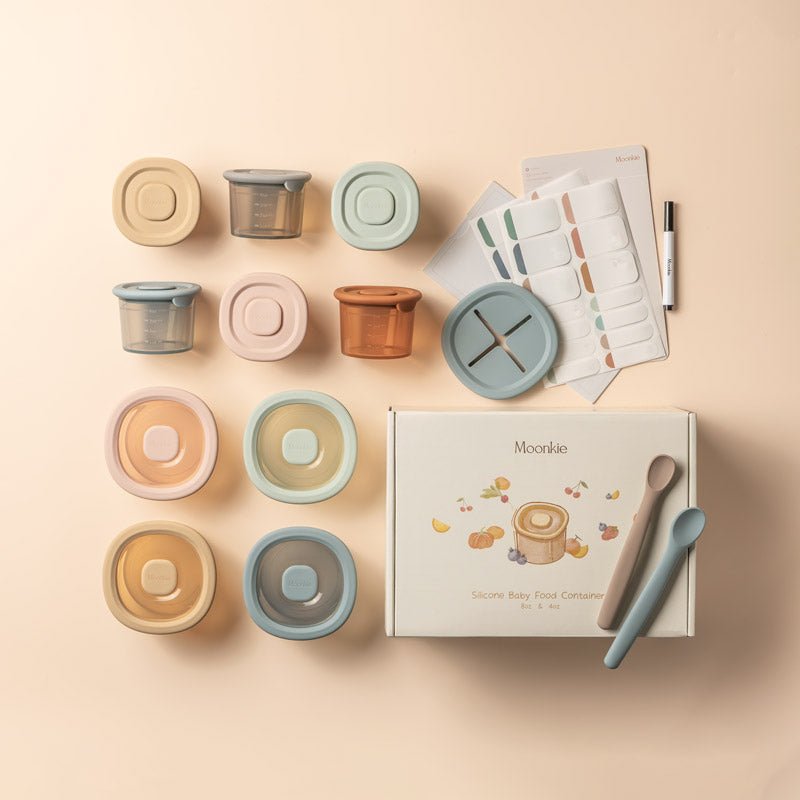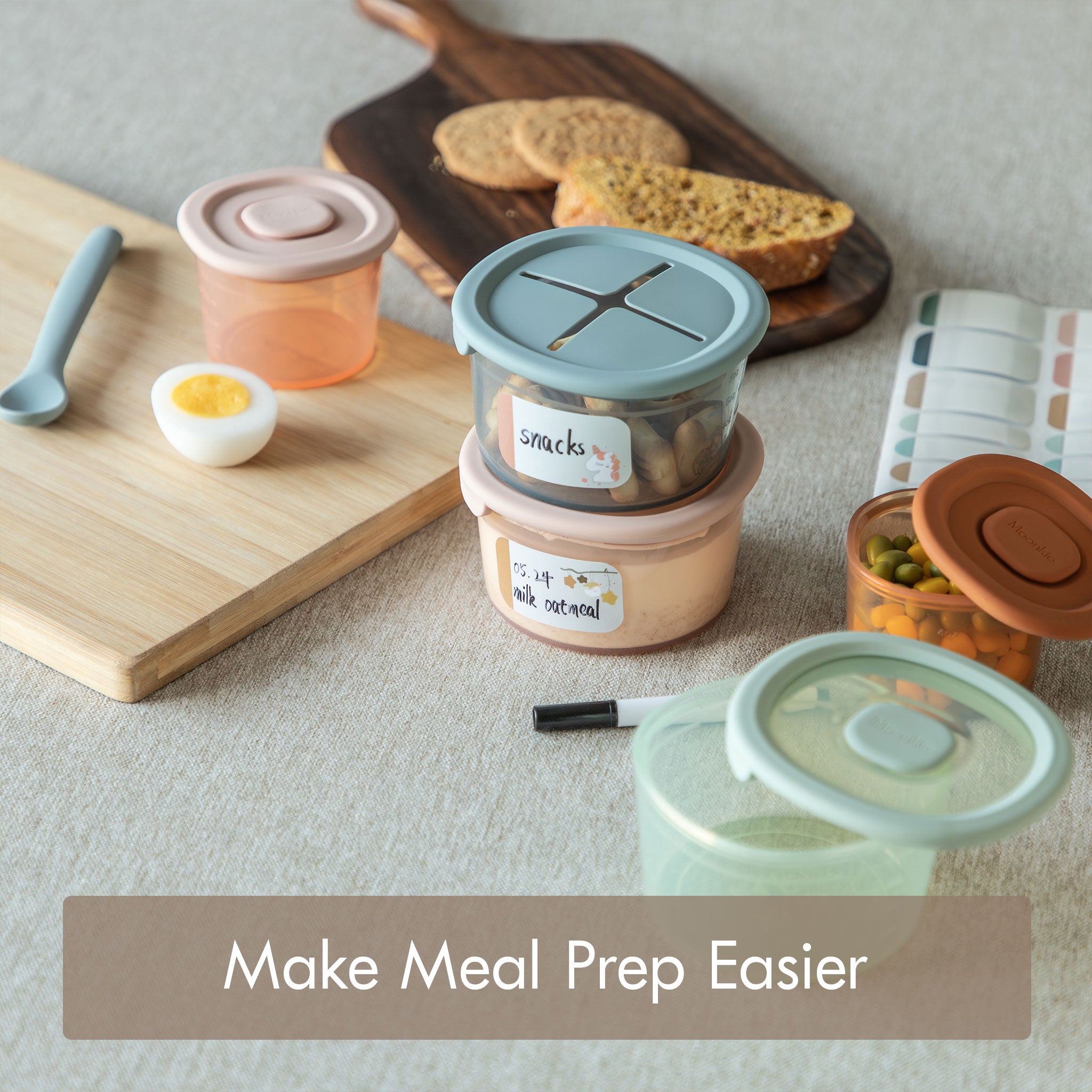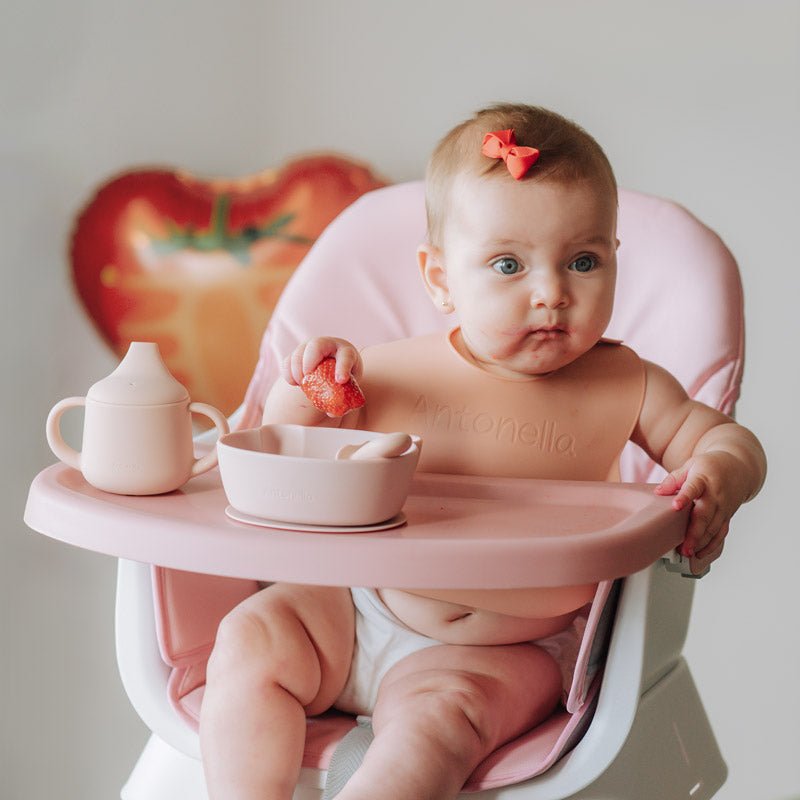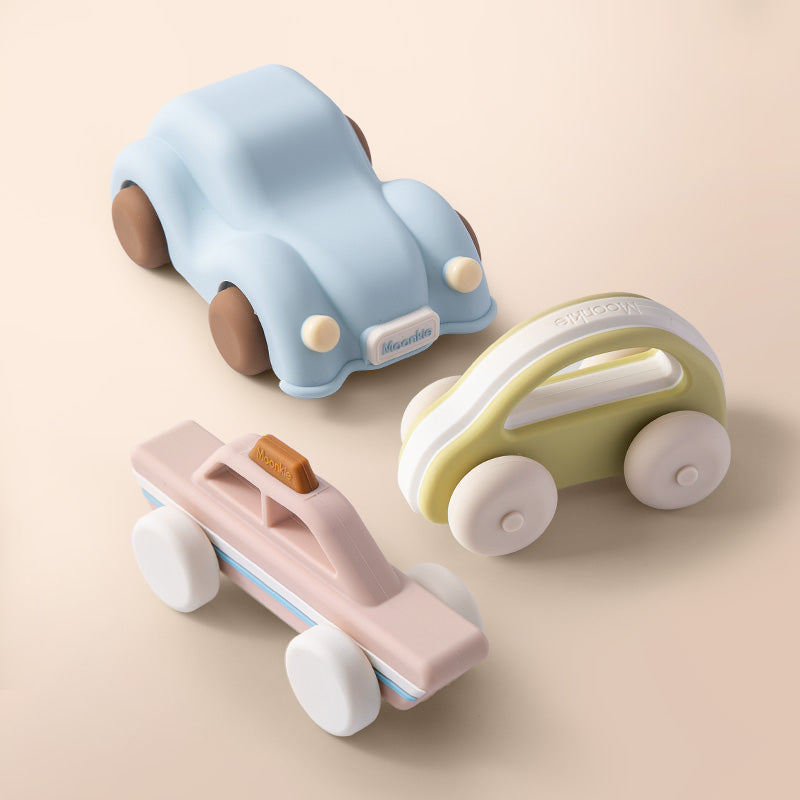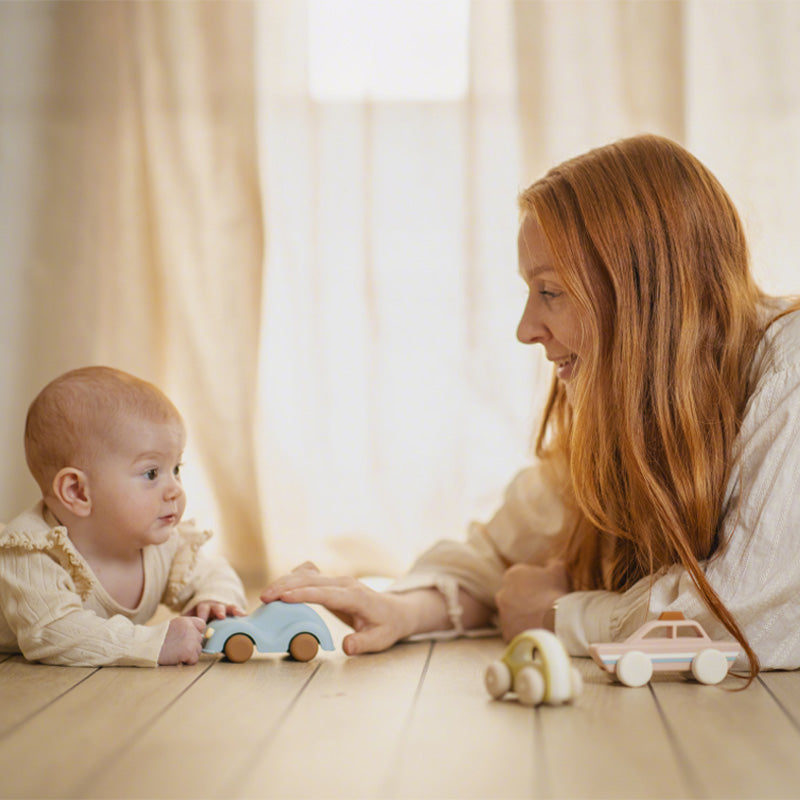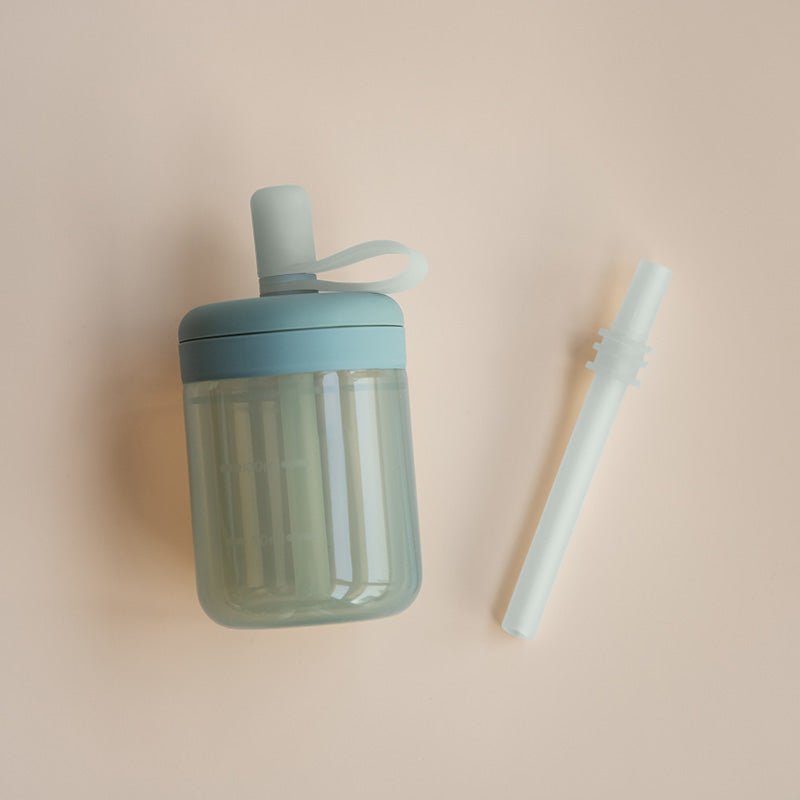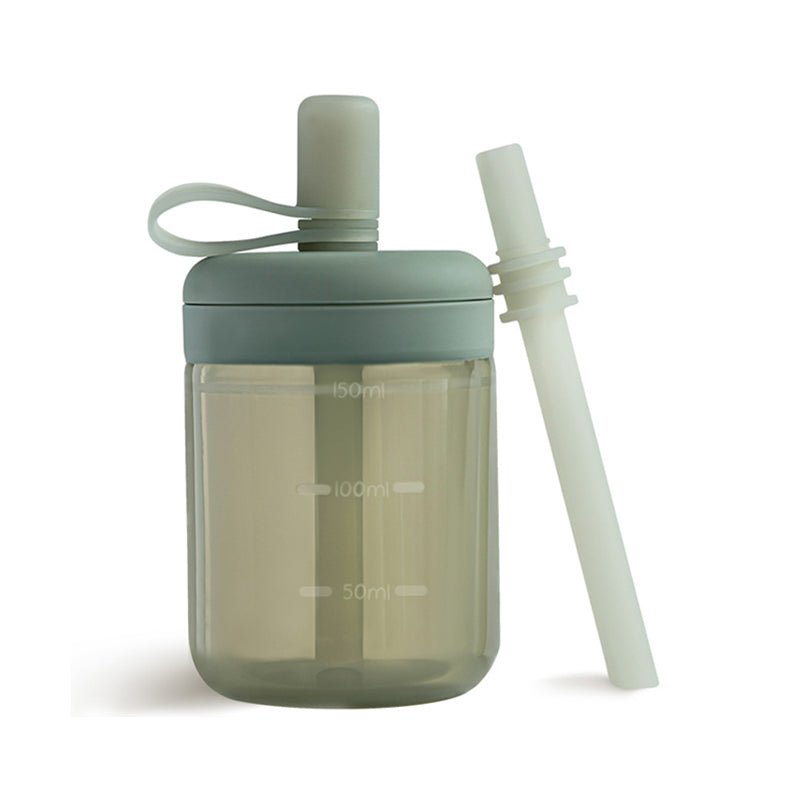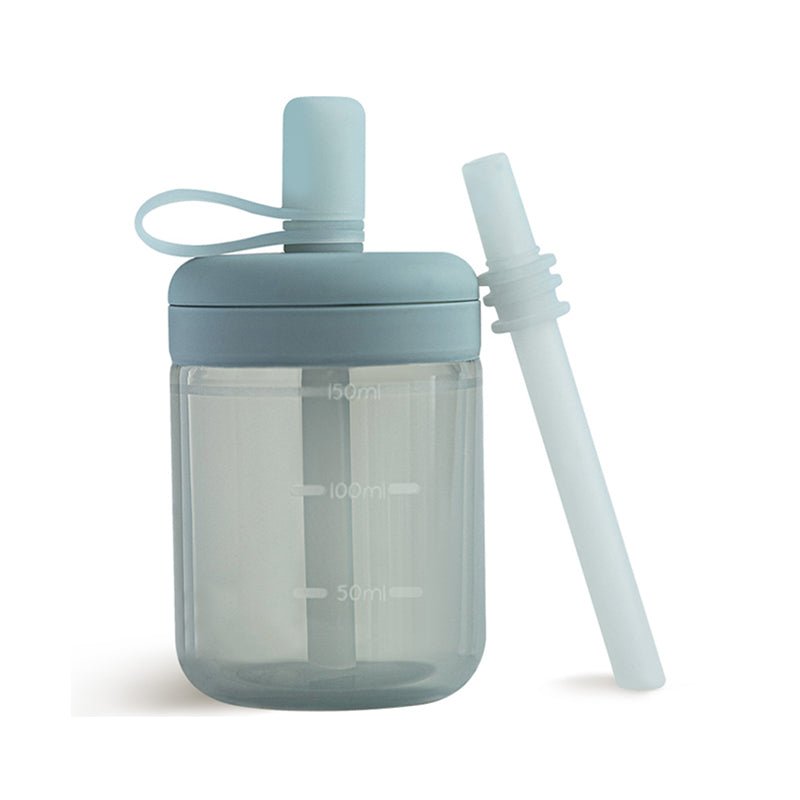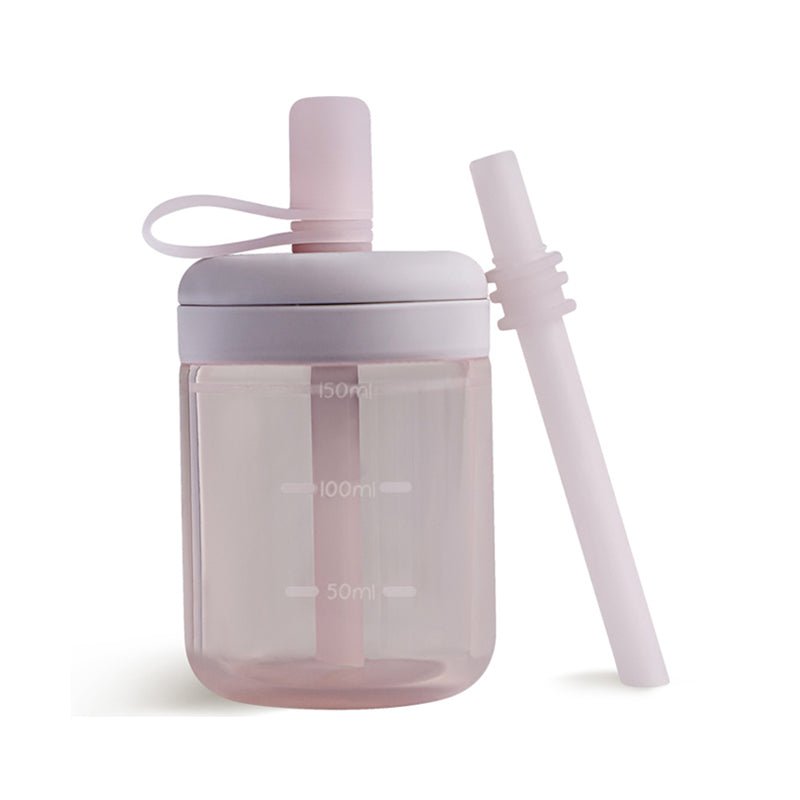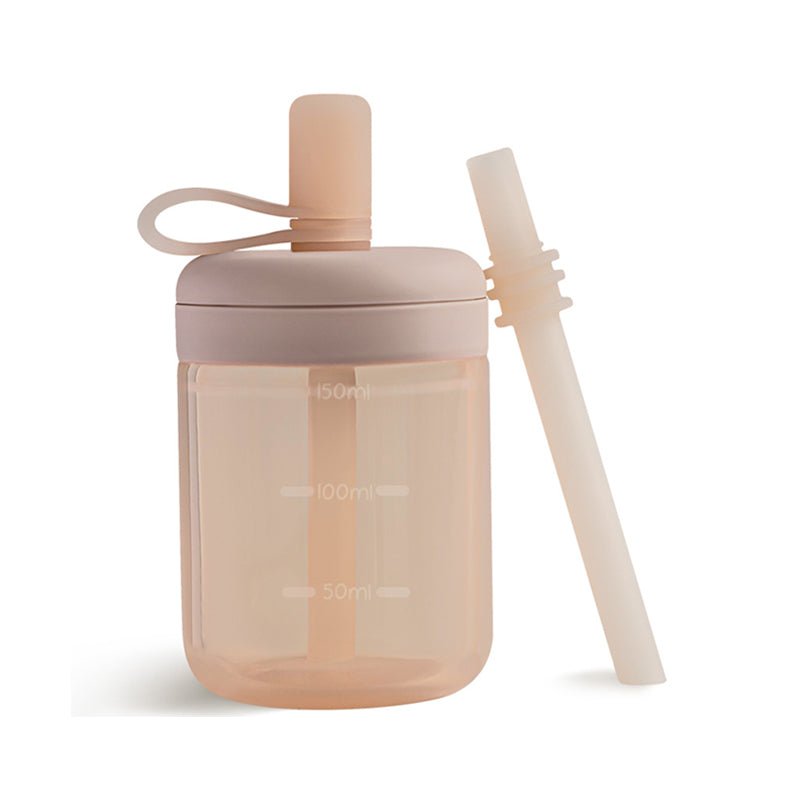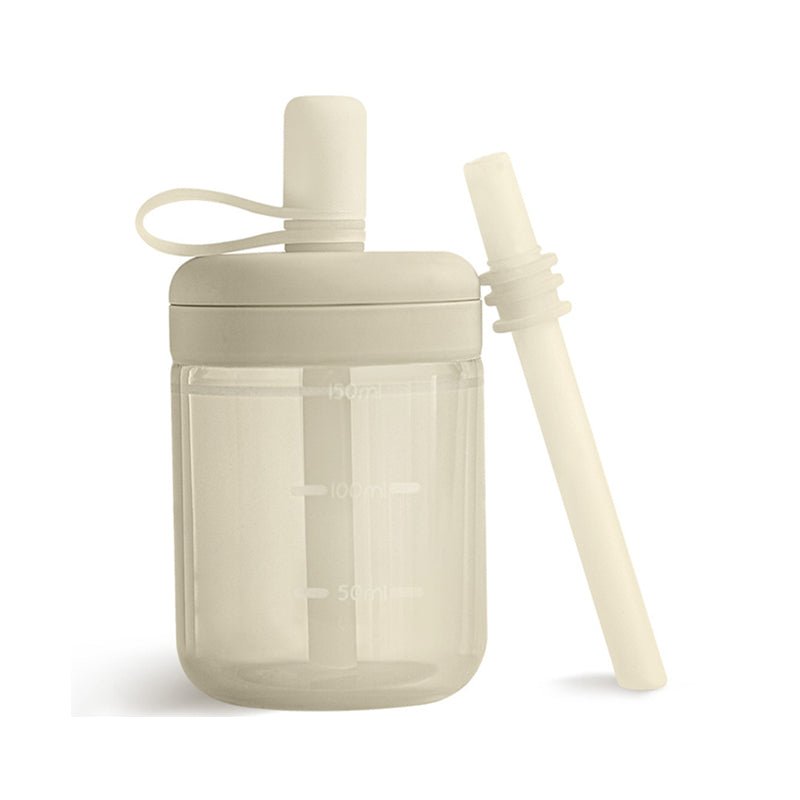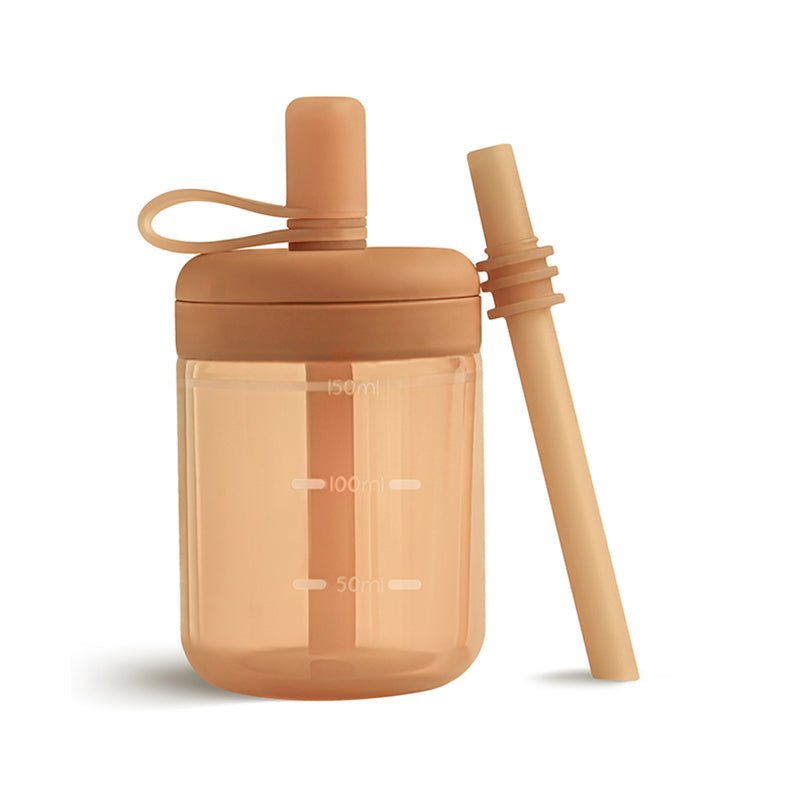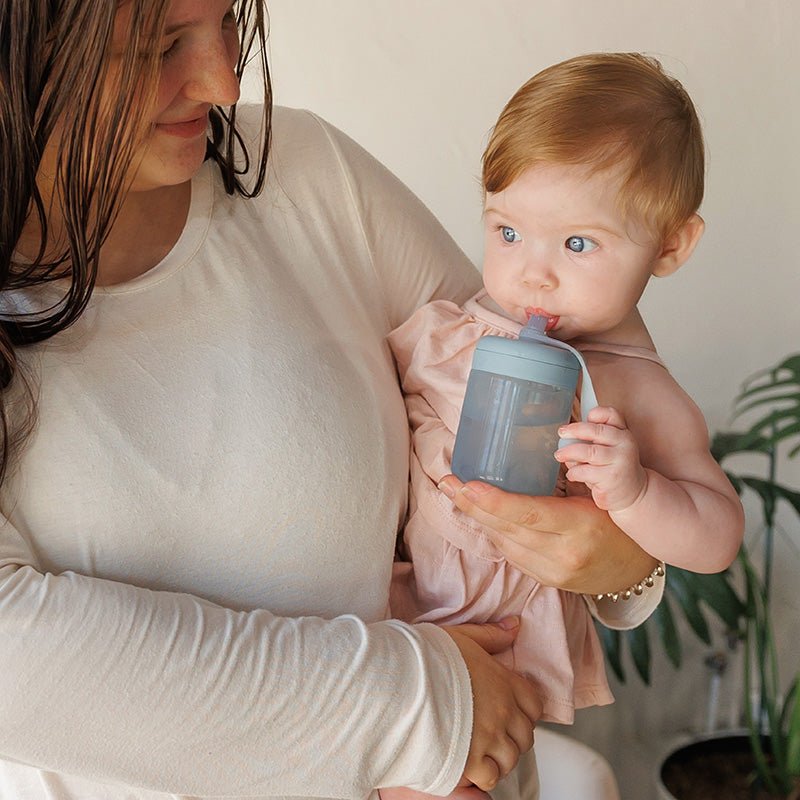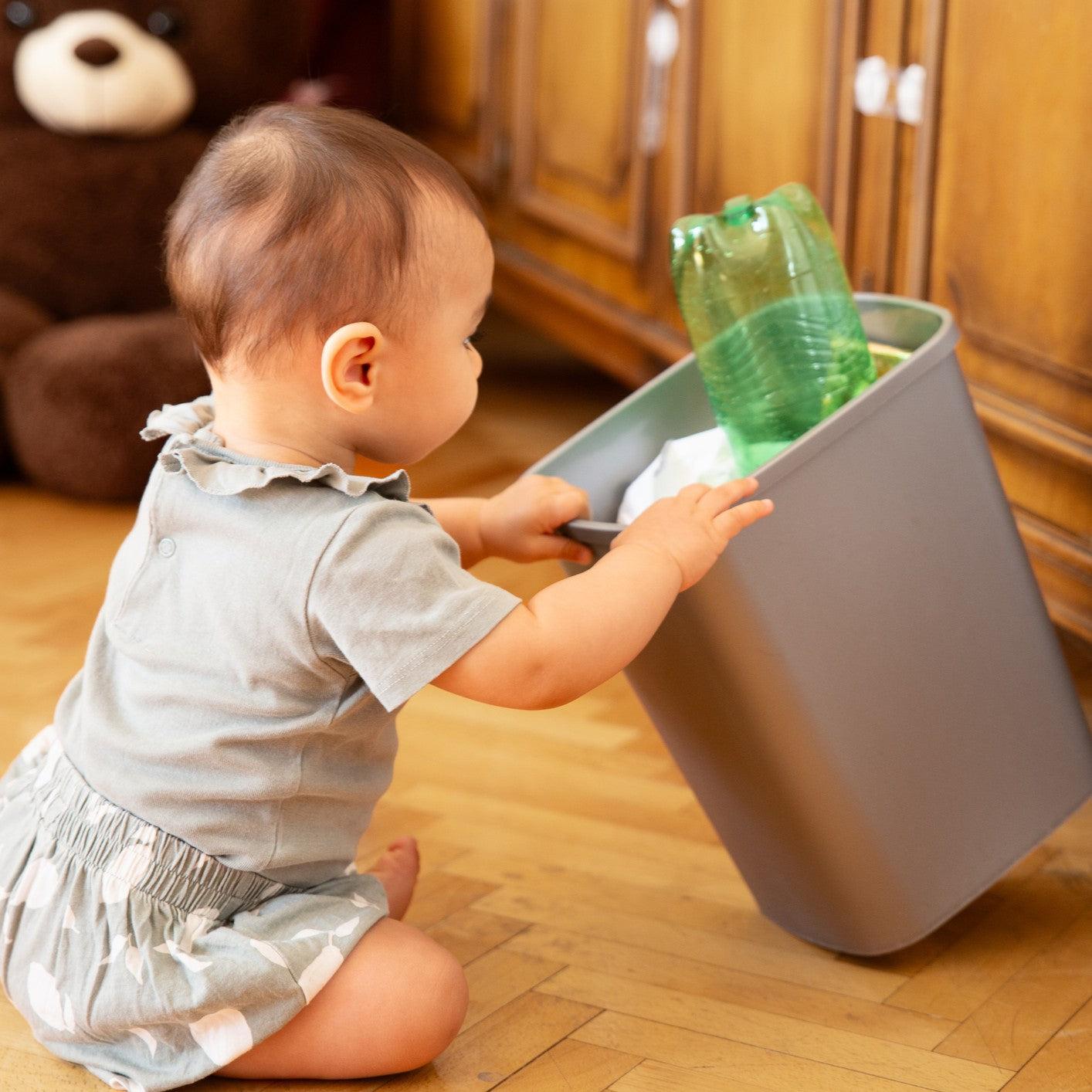One-third of American parents surveyed about stress in 2023 rated their stress level at 8, 9, or 10 on a 10-point scale (source). While this report doesn't shock most parents, it should get attention because stress impacts baby development inside and outside the womb.
Maternal stress negatively impacts fetal brain development, depresses the gut microbiome, and potentially causes premature birth and low birth weight. Consistently high parental stress also shapes a newborn's social, physical, cognitive, emotional, and social development.
Though parents cannot avoid stress altogether, they can manage it. Being aware of your stress and controlling how you behave toward and around your baby while stressed are key ways to ensure you avoid passing your stress on to your little one.
How Does Stress Impact the Body?
Stress is the body's physical response to "stressors" or stressful experiences. It is not just worrying or being concerned about something; stress is a physical response.
For example, if you are on a plane that suddenly drops two hundred feet in altitude due to turbulence, your body will go into survival mode:
by releasing adrenaline, noradrenaline, and cortisol hormones
by dilating your pupils
by increasing your heart rate
by slowing your digestion to conserve energy
Stress is a physical response in "fight or flight" mode that helps you quickly react so you can survive dangerous situations. It is good from time to time, but it is bad for your body if it happens constantly (source).
Your baby has the same physical stress responses, however, they have a greater impact on the body long term because your baby is developing rapidly in the first three years of life and particularly rapidly in the first year (source).
Hormonal Responses
The long-term effects of entering a "fight or flight" response have a lot to do with hormones. In response to stressors, your body (and that of your little one) releases adrenaline, noradrenaline, and cortisol.
The adrenal medulla releases adrenaline and noradrenaline to increase your heart rate, blood pressure, and blood flow to your muscles (source). These make you more alert and quick to react.
Releasing adrenaline and noradrenaline also releases glucose from the liver for energy and widens your airways to increase your oxygen intake (source).
In stressful situations, your brain's adrenal cortex releases cortisol to increase your blood sugar levels, enhance your brain function, and suppress your immune system to conserve energy (source).
These hormones also restrict blood flow to your digestive system to slow it down or halt it, conserving energy for immediate needs.
So, frequently entering a "fight or flight" state means your immune system and digestive system are depressed regularly, and your blood pressure and glucose levels fluctuate drastically and often.
Obviously, this isn't ideal for an adult long term, but imagine how damaging it can be for a rapidly developing brain and body to experience these fluctuations frequently. Sure, there would be immediate impacts, but the long-term impacts could have serious consequences. Let's talk about how.
Does My Stress Impact My Baby During Pregnancy?
In short, the answer is yes: your stress impacts your baby during pregnancy. Your baby is inextricably linked to you throughout pregnancy, so the food you eat, the medicine you take, the oxygen you breathe, and the hormones you release all impact your baby in one way or another.

A quick note: When I describe stress responses in this article, I am not just referring to stress from physical danger or little things in life that worry you.
I'm referring to the chronic stress of poverty, structural racism, domestic abuse, emotional abuse, depressive disorders, and other circumstances that put your body into a state of "fight or flight."
As your body responds to these stressors throughout your pregnancy, it "prepares" your baby to enter a stressful environment by conditioning his or her brain and body (source).
Thankfully, babies conditioned to high stress in the womb but born into a safe and non-threatening environment can still "rewire" their brains.
The brain has three years of rapid development after birth, which presents many, many opportunities to "condition" the child with love, safety, and positive experiences (source).
But before we dive into positive experiences that "undo" damage from stress in the womb, let's take a look at what chronic stress during pregnancy does to the developing fetus.
Brain Development
According to the American Heart Association, research suggests that somewhat high levels of stress during pregnancy can make the developing fetus susceptible to cardiovascular and psychiatric illnesses decades later in life (source).
However, Jill Goldstein, a professor of psychiatry and medicine at the prestigious Harvard Medical School, noted that the mother's stress doesn't cause cardiovascular or mental diseases and disorders--"it creates a vulnerability to them" (source).
Cortisol Exposure
Prolonged exposure to cortisol in the womb is a problem because, just as cortisol suppresses your immune and digestive systems to conserve energy in stressful situations, it disrupts development in your fetus's brain.
It seems that frequent exposure to lots of cortisol in utero can create a hypersensitivity to stress and immune system issues, which inadvertently contributes to disease vulnerability later in life (source).
Premature Birth and Low Birthweight
Lots of stress during pregnancy has also been frequently associated with premature birth and low birth weight (source). Genetics also play a role here, but newer research suggests that non-genetic factors, like the mother's chronic stress, diet, and hydration, also affect birthweight and birth timing.
Heavy stressors that frequently put a mother into a physical stress response can drive her to handle that stress by overeating, turning to lots of sugar, smoking, drinking, refusing to eat, oversleeping, not sleeping enough, drugs, or other addictions (source).
Many poor habits can lead to premature birth and low birth weight, so identifying what you are prone to turn toward to handle lots of stress is helpful for curbing habits that could harm your baby during pregnancy or the intensive postpartum period.
Gut Microbiome
When entering a stress response, hormones increase blood flow to the brain, muscles, and respiratory system while restricting blood flow to the ever-important digestive system and suppressing the immune system. If done regularly enough, these fluctuations impact the gut microbiome.
The human gut has an incomprehensible number of bacteria and microbes for breaking down food into nutrients. The more varied and balanced the microbes are in the gut, the generally healthier the individual.
Ongoing research suggests that mothers who experience lots of stress during pregnancy are more likely to have babies with a less diverse gut microbiome, which heightens the risk of disease (source).
Notice how most of a mother's constant high stress during pregnancy impacts the baby by creating a heightened vulnerability to disease and illness for decades. Before discussing how to soften stress's effects during the first years, we need to understand what stressors do to newborns.
Does Stress Impact My Newborn?
According to ZERO TO THREE's national survey of parents, 47% of parents believe their stress doesn't affect their babies before a year old, and 50% of parents don't believe the quality of their parental care has long-term effects on a baby's development until after 6 months of age (source).

However, babies as young as three months old have big feelings, like sadness or fear, and they can pick up on those feelings in their parents and mirror them (source).
Babies learn about the world and how to react to it by watching their parents' reactions. Their heart rate will pick up in stressful environments (even if they are sleeping), and they will tense up, cry, breathe with difficulty, drop their oxygen saturation levels, release stress hormones, and have digestive upset.
You can probably see that dropping oxygen saturation levels, depressing the immune system with stress hormones, and upsetting the digestive system frequently is incredibly disruptive to a baby's normal growth and development.
As a parent, you are your baby's filter for all the stimulation of life. Your reactions to things—whether you are calm and collected or angry and upset—cue your baby's reactions.
How Does My Stress Impact My Newborn?
Yes, your stress as a parent is "contagious" to your baby (source). Going deeper, your behavior in stress and preoccupation with something else can make you less responsive to your baby's physical and emotional needs and less engaged overall.
Not only will this impact a baby's emotional and social development (parents lay the foundation for these in the first year by interacting with their babies), but parental emotional distancing and preoccupation with other things can increase a baby's cortisol levels (source).
That cortisol spike comes from not knowing when or if their needs will be met, which can result in not feeling comfortable enough to explore, clinging to a parent, or avoiding and ignoring parents (source).
Taking care of yourself is crucial to providing everything your baby needs from you emotionally, physically, mentally, and socially. Learn more about this in How Much Does Taking Care of Myself Help My Baby?
If I Had a Stressful Pregnancy, Is It Too Late to Reverse Potential Damage to My Baby?
No! Your baby's brain still develops rapidly for about three years after birth (though not as rapidly as it did in utero). The first year is the most important of these three years because it is foundational to all later social, linguistic, motor, physical, emotional, and cognitive development.
Your baby's environment during that first year can shape everything, strengthening neural pathways, regulating stress hormones, and ensuring the immune and digestive systems are not suppressed from unnecessary stress.
Babies and toddlers, especially babies in their first year, need lots of intentional time with their parents. Speaking soothingly with your baby, cuddling, playing, and exploring together are among the best activities for your little one's growth and development.
Read more about this in Quantity vs. Quality: Prioritizing Your Baby's Needs.
5 Ways to Lower Stress for My Baby
It is impossible to avoid stress while pregnant with or raising your baby. Besides, stress isn't a bad thing to avoid; it's a physiological process that we need to survive. The key is listening to our bodies and keeping stress responses in check.

For daily stressors, the cause of stress is typically not what will impact your baby's brain and body. It's how you handle that stress as a parent (source). Poorly regulated chronic stress is potentially detrimental to you and your baby's health and development.
So, here are a few ways to help regulate yourself and your baby during or after a stressful event, promoting resilience for future trials.
1. Daily Rhythms: Cosleeping, Breastfeeding, and Skin-to-Skin Contact
Since mothers carry their babies in pregnancy, babies have a unique physiological attachment to their mothers. The mother simply being present in a stressful situation can reduce how much cortisol gets released in the baby's brain, though the opposite happens if the mother has not bonded with the baby (source).
Nurturing a secure attachment through skin-to-skin contact, breastfeeding, and cosleeping is phenomenally powerful in calming a baby. However, being stressed or depressed definitely lessens the soothing effects of these daily rhythms (source).
I mention cosleeping here because it was regularly practiced globally until about 100 years ago. Parents began allowing their babies to "cry it out" and sleep in another room to "help" their babies adjust to independent sleep faster.
Unfortunately, more recent research calls such practices into question. Particularly, many studies show that leaving your baby to "cry it out" subjects your baby to unnecessary stress (and we've already discussed what that can do to the body) (source).
Sure, your baby will likely stop crying and fall asleep sooner than if you practiced cosleeping for the first few months, but how much of that is true independence versus giving up on being heard while in distress?
Your baby will eventually develop independence without you forcing it. Let it come from supporting their curiosity and exploration naturally rather than leaving them to cry to sleep alone.
Cosleeping doesn't have to be all night--it can be contact naps during the day, falling asleep with you at night before being shifted to his own bed, sleeping in his own bassinet next to your bed so you can rest your arm next to him, or doing nighttime feedings together.
If you opt to cosleep, ensure you won't suffocate your baby with blankets or yourself.
2. Seek Support
If you are stressed all the time by life circumstances, get support. Ask for help from friends and family members, talk to a therapist, or join a group of parents trying to support one another.
It takes a village to raise children—we are not designed to do this alone. Surrounding yourself and your baby with loving, caring people will help reduce overall stress.
3. Talk to Your Baby
Talking and singing to your baby intentionally and directly works wonders for your baby's brain development and your bond. Talk about what you are doing as you work on chores, play with your little one, or watch what she is watching.
Reading books out loud to your baby also helps with development, lowering stress, and nurturing your bond.
4. Exercise with Your Baby
Exercise plays a massively crucial role in reducing stress, regulating hormones, and making you feel better overall. Your baby benefits from exercise, sunlight, fresh air, and your mood lift!
If you cannot go outside because of the weather (or it's unsafe to be outside alone), exercise inside. You can find plenty of free exercise-with-your-baby ideas online. Your little one will be amused!
5. Practice Mindfulness
Mindfulness is paying attention to the present—intentionally choosing to do so—without judgment. Actively being aware of your thoughts, feelings, body, and surroundings with acceptance helps you step out of a reactive, overstimulated mindset.
Coupling mindfulness with breathing deeply (in seconds: inhale for four, hold for four, exhale for four, and hold for four) will induce a physiological calming response that your baby will sense, too.
In a Nutshell
Parents are already stressed by life, so adding a newborn adds a lot more to their plates. Understanding stress and how it affects your body and your baby's development is a crucial first step in controlling it. From there, learning to handle stress well and keep it in check will help you and your baby now and well into the future.






